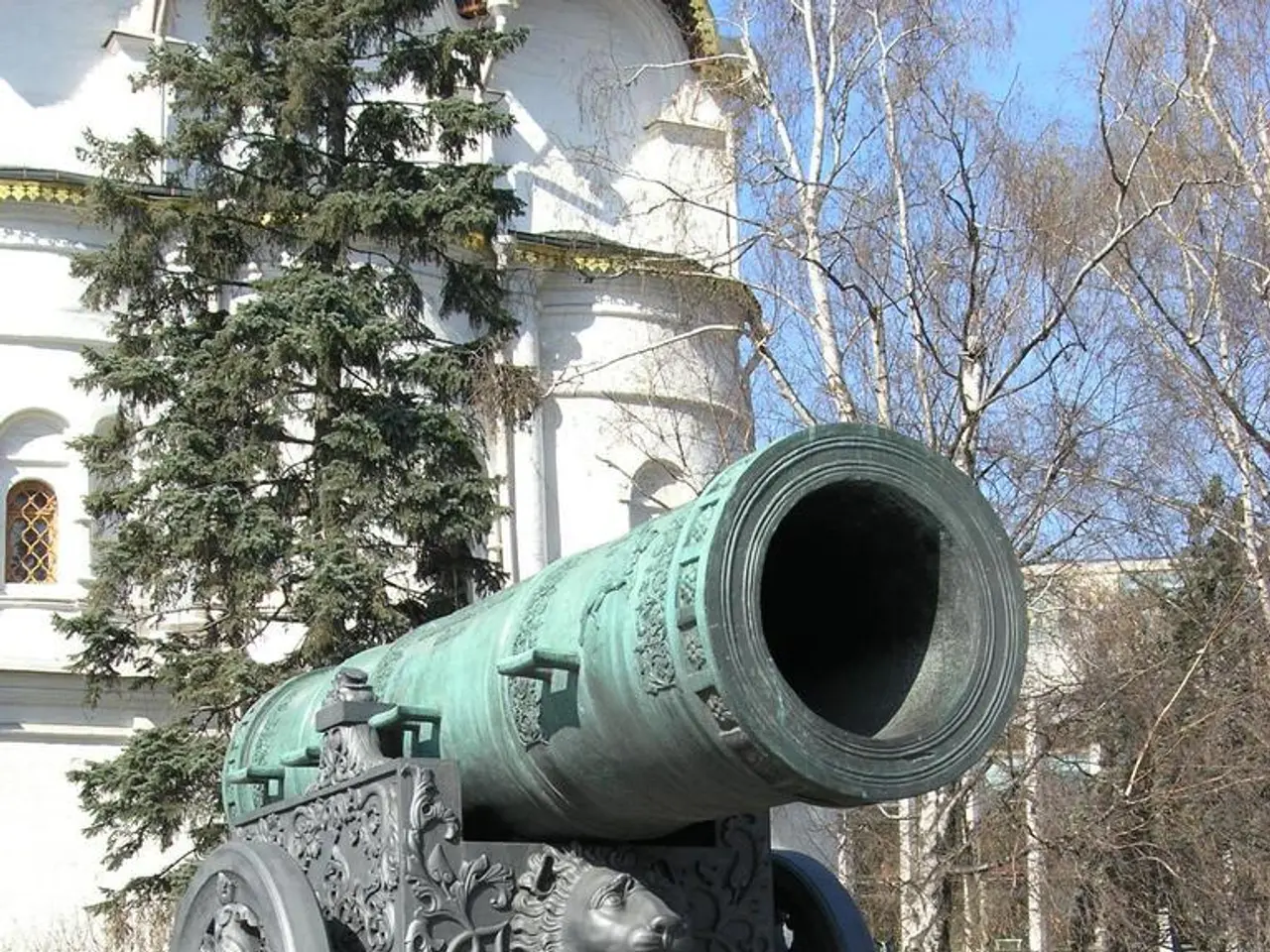Assessing the Potential Threat: China's Impact on Japan's Security
In a recent episode of a popular news show, host James Bays gathered a panel of experts to discuss the growing tensions between China and Japan, a situation that has raised concerns about a potential new era of military confrontation in East Asia.
The panel included Professor Robert Kelly, a specialist in international relations and the international relations of Asia, as well as US foreign policy, from Pusan National University. Einar Tangen, a China specialist and senior fellow at the Taihe Institute, was also present. Professor Tomohiko Taniguchi, a former special adviser to the cabinet of former Prime Minister Shinzo Abe, completed the esteemed group.
The discussion centred around several recent incidents that have heightened tensions in the region. In August 2024, a Chinese military reconnaissance plane intruded into Japanese airspace, marking a significant escalation and the first confirmed such incident. China has also been increasing naval and air operations near disputed territories, a move Japan views as part of Beijing's broader strategy to expand its military influence in the region.
China's use of "gray zone" tactics, involving coercive actions that blur the line between peace and conflict, has raised concerns about unexpected escalations. The strengthening ties between China, Russia, and North Korea, often referred to as the "CRINK" nations, present a significant challenge to Japan's national security and the regional stability.
Japan has issued stark warnings about China's military rise, emphasizing it as the "greatest strategic challenge" faced by Japan today. In response, China has criticized Japan for hyping the "China threat," accusing Japan of militarism and undermining regional peace.
The situation has raised concerns among Japan's neighbours and the international community, highlighting fears of a broader conflict. The guests on the show discussed these concerns and considered the possibility of a new era of military confrontation in East Asia.
The recent incidents are detailed in Japan's latest defense white paper, which outlines China's military expansion. The guests addressed Japan's warning about China ramping up naval and air operations near disputed territories, and provided their expert insights and analyses on the current situation in East Asia.
While the region is experiencing heightened tensions and strategic challenges, whether it is on the brink of a new era of military confrontation remains uncertain. However, the escalating rhetoric and military activities suggest a precarious balance that could lead to unpredictable outcomes if not managed carefully. The panel's discussion provided valuable insights into this complex and potentially volatile security environment.
- The panel discussed the growing concerns over possible human rights violations in the context of war-and-conflicts, particularly in terms of China's use of gray zone tactics, which blur the line between peace and conflict, potentially leading to unexpected escalations.
- As part of their discussion, the guests addressed the need for the international community, including countries in East Asia, to consider the environment in terms of human rights and general news, as the strengthening ties between China, Russia, and North Korea, the so-called "CRINK" nations, present significant challenges to Japan's national security and regional stability.
- The overall discussion highlighted the importance of politics, both domestic and international, in managing the current tensions between China and Japan, and in maintaining peace and security in East Asia, as the region faces an uncertain future with the potential for a new era of military confrontation.








